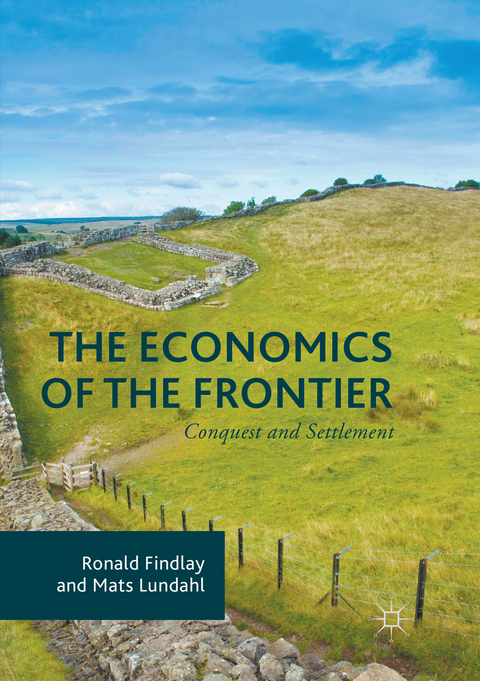
The Economics of the Frontier
Palgrave Macmillan (Verlag)
978-1-349-95637-1 (ISBN)
The Economics of the Frontier brings together a collection of essays which explore how economically optimal frontiers were founded from sixth-century Europe through to twentieth-century Brazil.
Ronald Findlay is Ragnar Nurkse Professor Emeritus of Economics at Columbia University, USA. His main research fields are international economics, development economics, economic history, and economic theory. Mats Lundahl is Professor Emeritus of Development Economics at the Stockholm School of Economics, Sweden. His main research fields are development economics, international economics, economic history, history of economic doctrines, and agricultural economics.
Introduction: Frontiers and Empires.- 1. Frontiers and Empires in Historical Perspective.- 2. Modeling Global Interdependence: Centers, Peripheries and Frontiers.- 3. Towards a Model of Territorial Expansion and the Limits of Empire.- 4. Demographic Shocks and the Factor Proportions Model: From the Plague of Justinian to the Black Death.- 5. The First Globalization Episode: The Creation of the Mongol Empire or the Economics of Chinggis Khan.- 6. Towards a Factor Proportions Approach to Economic History: Population, Precious Metals, and Prices from the Black Death to the Price Revolution.- 7. International Trade and Factor Mobility with an Endogenous Land Frontier: Some General Equilibrium Consequences of Christopher Columbus.- 8. Natural Resources, 'Vent-for-Surplus' and the Staples Theory.- 9. Resource-Led Growth – A Long-Term Perspective: The Relevance of the 1870–1914 Experience for Today's Development Economies.- 10. Lampião and the Colonels: On the Political Economy of Banditry.- Epilogue: Frontiers – Theory and History.
| Erscheinungsdatum | 16.08.2018 |
|---|---|
| Zusatzinfo | 27 Illustrations, black and white; XIV, 448 p. 27 illus. |
| Verlagsort | Basingstoke |
| Sprache | englisch |
| Maße | 148 x 210 mm |
| Themenwelt | Geschichte ► Teilgebiete der Geschichte ► Wirtschaftsgeschichte |
| Sozialwissenschaften ► Soziologie ► Spezielle Soziologien | |
| Wirtschaft ► Allgemeines / Lexika | |
| Wirtschaft ► Volkswirtschaftslehre ► Wirtschaftspolitik | |
| Schlagworte | Banditry • Black Death • Cultivation • Economic History • Economics • European territory • History • Peaceful settlement • Territorial expansion |
| ISBN-10 | 1-349-95637-6 / 1349956376 |
| ISBN-13 | 978-1-349-95637-1 / 9781349956371 |
| Zustand | Neuware |
| Haben Sie eine Frage zum Produkt? |
aus dem Bereich


